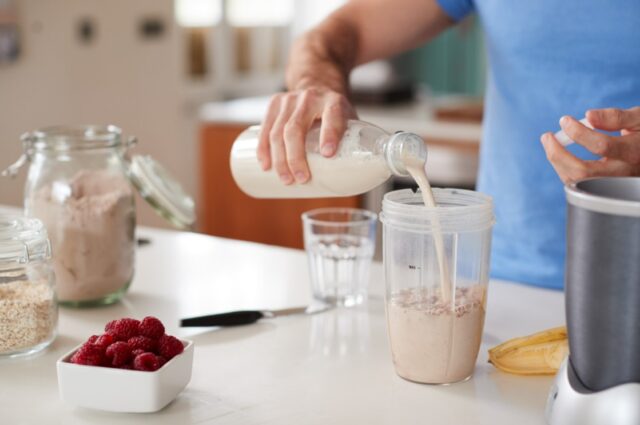
Vegan protein powder, or protein supplements that are entirely plant-based and free of animal-based ingredients like whey (dairy), provide a host of benefits. Among the most popular benefits is weight management and helps control appetite cravings.
What are the best vegan protein powders for weight loss and appetite control? And what are the best kinds of vegan protein powders for optimal nutrition and athletic recovery?
If you’re seeking answers to these questions, then we have you covered. After dissecting the world of plant-based protein products, we’ve uncovered some of the top picks that fall in this category. Below are three of the best vegan protein powders for both weight management and athletic performance.
1. Garden of Life RAW Fit High Protein for Weight Loss
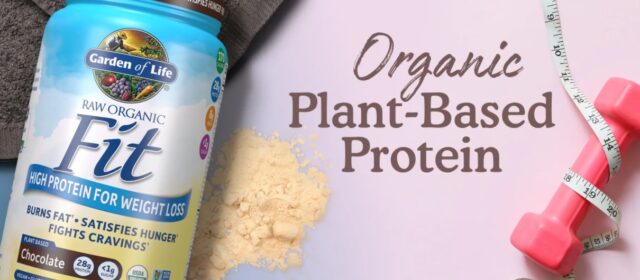
Garden of Life RAW Fit High Protein for Weight Loss is a gluten-free, raw vegan protein powder that truly lives up to its name. The protein composition is Garden of Life’s “RAW Certified Organic Sprouted Protein Blend,” which offers 15 different types of protein and 26 grams per serving. It also contains a blend of gut-friendly probiotics.
In addition to providing a significant serving size of protein, what gives this product its edge is “RAW Certified Organic Weight Loss & Stress Management Blend” with ashwagandha and Svetol® (naturally decaffeinated green coffee bean extract.) The ashwagandha helps to lower cortisol levels, which is a stress hormone that can influence weight gain. As for Svetol’s weight loss efficacy, we suggest checking out this review if you’re interested in learning more. In short, Svetol can indeed help with weight loss.
2. Vega Sport Protein Powder
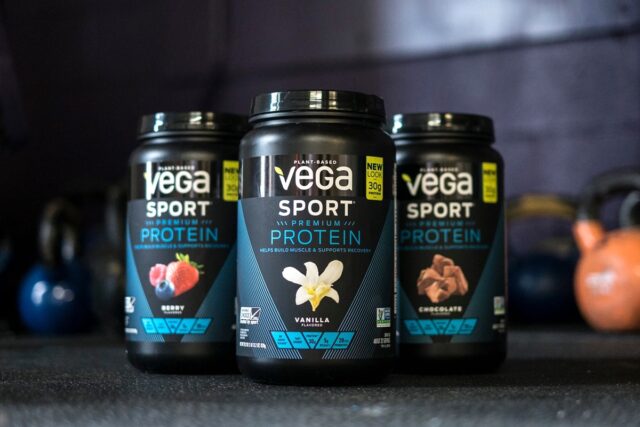
Created with athletes in mind who are looking to optimize recovery and stay fuller longer, Vega Sport Protein powder is an option that delivers one of the highest concentrations of amino acids. In fact, it contains a whopping 5 grams of branched-chain amino acids, which are essential for muscle recovery and helping sports-minded individuals get back at, sooner.
As for ingredients, Vega Sport Protein Powder contains pea protein, pumpkin seed protein, organic sunflower seed protein, and alfalfa protein. It’s also equipped with black pepper extract, which plays a role in a process that occurs in the liver called glucuronidation. According to this review of Vega Sport protein powder, glucuronidation is the process in which a molecule (glucuronide) attaches to certain substances to signal for their urinary excretion. The black pepper extract inhibits this process so that certain helpful ingredients, such as the anti-inflammatory turmeric found in Vega Sport Protein, can remain in the body and be distributed to the extremities for healing and recovery, as opposed to getting consumed by glucuronidation and thereby excreted.
3. Sunwarrior Illumin8 Organic Meal Protein Powder

More than just a plant-based protein powder, Sunwarrior Illumin8 Organic Meal protein powder is a complete nutritional shake that’s rich in vitamins, minerals, gluten-free carbs, and healthy fats. Topped off with blends of probiotics, enzymes, and sprouts, Sunwarrior Illumin8 makes for a nutritionally solid and satisfying protein supplement that helps with weight management.
Although this product is marketed as a meal replacement/nutritional shake, it is primarily a protein supplement. Depending on your diet and lifestyle, you may want to include more calories when using this product. Nonetheless, Sunwarrior Illumin8 has 19 filling grams of protein composed of organic sprouted amaranth, garbanzo, lentil, and quinoa.
These are just a few wonderful vegan protein powders that are shown to help with weight management.
What You Should Know About Plant Proteins and Amino Acids
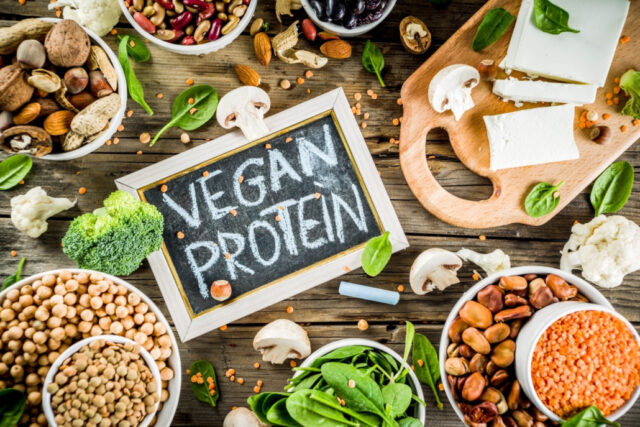
It’s worth mentioning that not all plant-based protein sources are considered “complete” with all essential amino acids. Rather, it’s the combination of plants that establish a complete protein with all essential amino acids. In most cases, a grain-based protein (e.g. rice, quinoa, or amaranth) must be combined with a legume protein (e.g. beans, peas, or lentils) to be considered complete. It is this strategic combination of plant-based proteins that make a complete protein.
Why Consume Plant-based Protein Powders vs Whey?
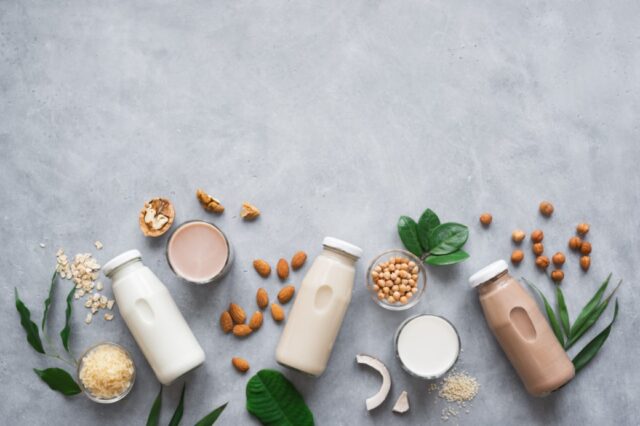
Anti-Inflammatory
Eating a vegan, plant-based diet, particularly foods that contain anti-inflammatory properties, has been shown to help individuals with better joint health and reduced inflammation, such as adults struggling with arthritis. Animal-based products, such as meat and dairy, can have the opposite effect and worsen the effects of inflammation. Dairy-based whey protein powder, although processed and extracted from milk, is no exception to this inflammatory issue.
Better Digestion
Another major advantage of consuming vegan protein powder versus animal-based protein sources like whey is that plants are abundant in healthy fiber. A key ingredient for healthy nutrient absorption and digestive health, fiber is essential for a healthy diet and naturally improves digestion. Conversely, poor digestion can contribute to problems like weakened immunity and fatigue in the long run.
Compared to vegan protein powder sources, whey and dairy-based protein powders contain lactose, which is the processed sugar found in dairy products like cow’s milk. Although most consumers can eat or drink lactose without any problems, it is lactose that can cause us to feel bloated and gassy afterward. Even without lactose problems, whey protein powder may not be the best option for digestion.
Allergy-Free
Additionally, for those who may be slightly allergic to milk and dairy-based products, consuming whey protein powder supplements can have a negative reaction both in terms of digestion and allergies. Unless a product contains specific added ingredients, almost all plant-based protein powders are allergy-free. That is because plant-based proteins are naturally allergy-free. Examples include legumes (e.g. pea, lentil, garbanzo bean), hemp seed, chia seed, quinoa, amaranth, buckwheat, and millet.
Last Word on Vegan Protein Powders

The choice between vegan plant-based protein powders or whey protein powders depends on an individual’s nutritional and dietary needs, personal morals and preferences, and overall intentions for supplementing with protein. Whey protein is a popular choice for athletes because it’s naturally high in branched-chain amino acids, which are key for building and repairing muscle fibers. Certain plant-based protein powder products have been created to match the same amino acid content as whey, they’re just a little less common. Vegan sources are very rich in fiber and micronutrients, which provides an edge over whey.
Most athletes and common individuals who seek low-inflammation, high-nutrient protein sources can find greater benefit with vegan protein powders versus whey. The bioavailability of micronutrients is significantly higher with plant-based sources, not to mention the benefits in being low inflammation, great for digestion, and allergy-free.







